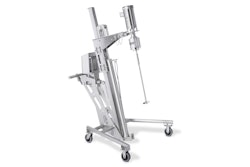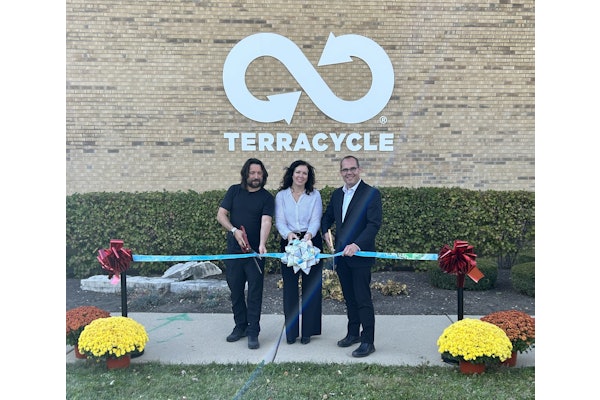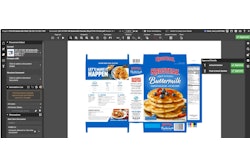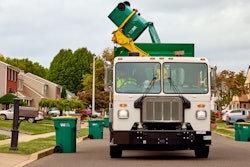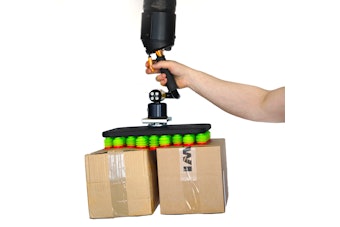Though innovation is a critical component of a sustainable business model, keeping it alive can be a struggle. DuPont asked a panel of thought leaders to weigh in on ways to boost innovation after they finished judging entries in this year’s DuPont Awards for Packaging Innovation.
Jason Wadsworth, sustainability manager, Wegmans Food Markets, Inc., USA:
“For innovation to come alive, there needs to be communication throughout the value chain—from raw material sourcing to end use. Competitions like this help inspire innovation and communication.
“Limits placed on research and development will also limit innovation. We need to allow these teams to test ideas and to work throughout the supply chain. R&D can’t innovate in a silo. We have to be open to partner with others and break down tension points.”
Shanna Moore, DuPont Packaging & Industrial Polymers director of sustainability and leader of the DuPont Packaging Awards program:
“Idea exchange—when we come together to share ideas, challenge preconceived notions, and take a moment to celebrate achievements as we do in the Packaging Awards, we help facilitate new ideas.”
Tony Burns, associate director, The Procter & Gamble Company, Cincinnati, OH USA:
“Innovation is an imperative business choice to compete in the global economy. If you are not competitive with new ideas, you are not going to win. The challenge is to innovate in light of all other priorities. Innovation must be part of core strategy.
“Packaging needs to be treated as a brand-equity investment. If packaging is treated as a cost, it will continue down the road it is now.”
Mary Gregg, director, packaging, Campbell North America, Global R&D, Campbell Soup Company, USA:
“Create tension—where there is tension, whether natural or competitive or created by new technology, that tension point is where innovation is.”
Sudhakar Gupta, director, international business development, IFFCO Group of Companies at International Food Stuffs Company, UAE:
“We need to challenge everything that was done in the past in light of changes in the global environment and in consumer behavior; increases in consumption; and a growing population. We must find a way to engage the various disciplines and stakeholders impacted by the changes and find a balanced approach so we together innovate and create packaging solutions that can preserve and contribute to providing food at a reasonable value, thus creating a sustainable future. We must set, measure, incentivize, and reward such innovations in public forums, creating new products for ever-changing, ever-evolving markets.”
David Luttenberger, CPP - vice president/packaging strategist for Iconoculture's Global Packaging Advisory Service, USA:
“I agree that communication, tension, collaboration are all needed for innovation. I would add education. I like to go to universities to inspire the packaging engineering and design students. We need to bring them into a discussion like this; make them a part of the collaborative, creative, technical innovation; give them a sense of what is needed or possible. The critical thing is to make them part of the process.”
Ann O’Hara, vice president and general manager, Amcor Flexibles, Australia:
“The reality is that packaging makes the least amount of money, and requires a huge investment—the assets need to be refreshed every five to 10 years. Is there an innovative way to bridge the funding/investment gap? Is it something that can be government or university sponsored? There is also a gap in research and development. And the gap is not just about money. We need to allow time to innovate.”
Jeff Schuetz, staff vice president, global technology, Consumer Packaging, Sonoco, USA:
“We need to take more risk. If it’s a technological innovation but a commercial failure, we should still recognize people who took a risk and did some great work. If you give them the freedom to take risk, next time it may be a success on both fronts. I agree with the role of education and think sponsoring student competitions with extreme deadlines will help them prepare for careers.”
Professor Antônio Dantas Cabral, PhD., course coordinator and professor, packaging, production and food engineering, Mauá School of Engineering, Brazil:
“Education is key, and we need to help students understand that incremental innovations are innovations too. Not every innovation has to be a ‘breakthrough.’ Not every answer is instantaneous.”
The DuPont Awards for Packaging Innovation, sponsored by DuPont Packaging & Industrial Polymers, are the industry's longest-running, global, independently judged celebration of innovation and collaboration throughout the value chain. Winners of the 25th annual awards will be announced on May 17. Follow DuPont Packaging: @dupontpackaging







